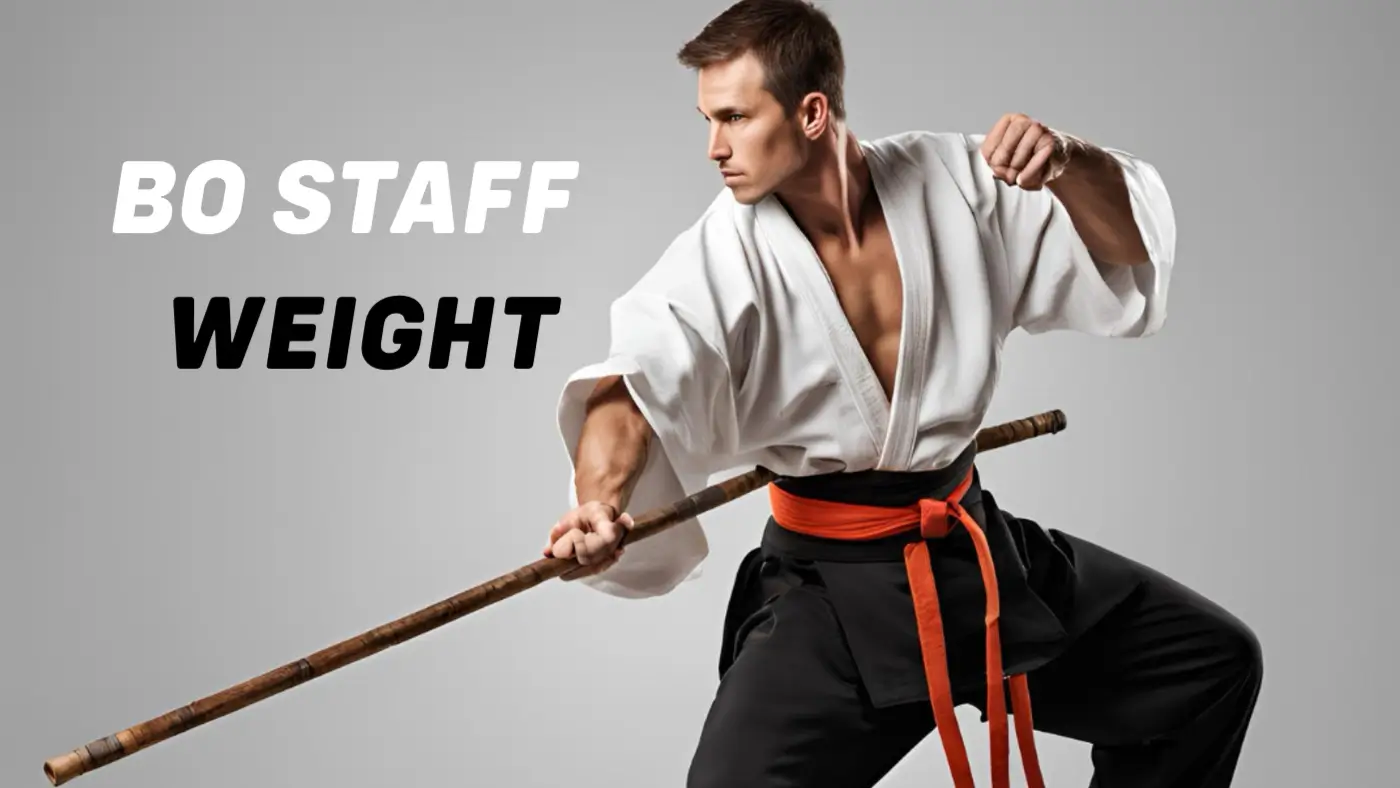When you start training with a Bo staff, one of the key factors to consider is its weight. The weight of the Bo staff can significantly influence your performance, training efficiency, and overall experience.

In this article, we will explore the different weights of Bo staffs, how to choose the right weight for your needs, and the benefits of training with various weights.
Table of Contents
Bo Staff Weight by Size
Bo staffs come in various lengths, and each length has a corresponding weight range. Here’s a detailed breakdown of the sizes and their respective weights:
| Bo Staff Size | Bo Staff Weight |
|---|---|
| 35”-42” | 450 grams (1 pound) |
| 42”-48” | 525 grams (1.2 pounds) |
| 48”-54” | 600 grams (1.3 pounds) |
| 54”-60” | 675 grams (1.5 pounds) |
| 60”-65” | 750 grams (1.6 pounds) |
| 66”-72” | 825 grams (1.8 pounds) |
| 72”-78” | 900 grams (2 pounds) |
How Weight Affects Bo Staff Performance
The weight of your Bo staff directly impacts your performance. A lighter staff allows for faster, more fluid movements, making it ideal for practicing speed and precision.
Heavier staffs, however, require more strength and control, which can lead to improved endurance and power.
As you become more skilled, you’ll find that switching between different weights can enhance your overall performance and versatility.
Benefits of Training with Different Weights
Training with different weights can offer a range of benefits. For instance, lighter staffs are excellent for improving speed and precision. They help you master quick, fluid movements with greater control.
On the other hand, heavier staffs are valuable for building strength and power. Handling a heavier staff requires more effort and can lead to increased muscle endurance over time.
Switching between different weights can also enhance your control and technique.
As you adapt to the varying demands of different weights, you refine your movements and become more versatile in your training. This variety makes you a more adaptable practitioner, able to perform well in different scenarios.
Additionally, training with different weights can lead to improved overall fitness. The physical challenges posed by heavier staffs contribute to muscle strengthening and conditioning. This can result in better physical performance in both Bo staff training and other physical activities.
Factors to Consider When Choosing the Right Weight
- Skill Level: If you are a beginner, start with a lighter Bo staff. A lighter staff is easier to handle and helps you learn the basics without feeling overwhelmed. As you gain more experience, you can gradually move to heavier staffs.
- Strength and Physical Condition: Your physical strength and conditioning also play a crucial role in choosing the right weight. If you have good upper body strength, you might handle a heavier staff better. Conversely, if you are still building strength, start with a lighter staff.
- Training Goals: Your training goals can influence your choice. If you aim to improve speed and agility, a lighter Bo staff might be more suitable. For building muscle and enhancing power, a heavier staff can be more effective.
- Type of Training: Different training styles may require different weights. For example, if you are focusing on fast, fluid movements, a lighter staff is ideal. For power and strength training, a heavier staff is better.
Frequently asked questions
For beginners, a lighter Bo staff is generally recommended. A staff weighing around 450 grams (1 pound) is a good starting point. It allows you to learn basic techniques without excessive strain.
If you find that a Bo staff feels cumbersome or difficult to control, it might be too heavy for your current level. Pay attention to how your body feels during training. If you experience discomfort or strain, it’s a sign that you may need a lighter staff.
Final words
Understanding the weight of your Bo staff and how it affects your training is essential for any practitioner. Start with a weight that feels comfortable and manageable. As you progress, challenge yourself with heavier staffs to build strength and enhance your skills.
Remember to warm up properly, focus on your technique, and practice consistently. By doing so, you will become a skilled and versatile Bo staff practitioner.
Keep practicing, and enjoy your journey with the Bo staff! If you have any questions or need further guidance, feel free to reach out. Happy training!
